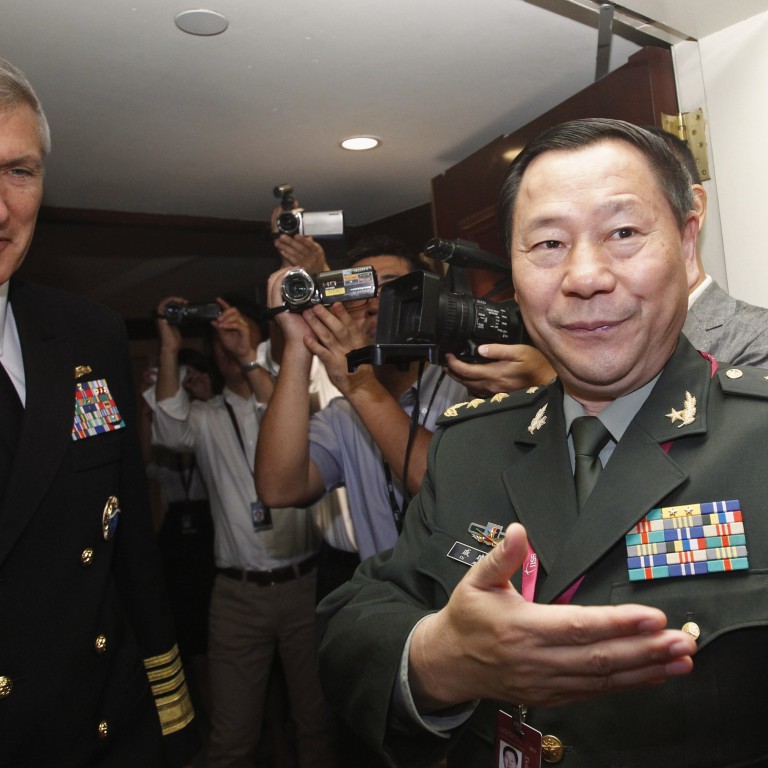
Top US commanders in Asia question cuts in military spending
Pacific commanders say planned reductions in military spending could make American forces less able to respond to a regional crisis
Top US military officers in the Asia-Pacific region said that budget cuts could hurt the ability of American forces to respond to a security crisis, including on the Korean peninsula.

Locklear and General Curtis Scaparrotti, who commands US forces in South Korea, were testifying before the Senate Armed Forces Committee on the US$496 billion defence budget for 2015, which trims spending and aims for a smaller, more modern force rather than a larger one less prepared for combat.
Some in Congress, however, see that as an approach that weakens US capabilities. Senators in particular voiced concern about the double-digit annual growth in China's defence spending and the threat posed by a nuclear North Korea.
This missile is capable of hitting not only most of Japan but also Russia and China
In prepared testimony, Locklear said budget uncertainties "ultimately reduce our readiness, our ability to respond to crisis and contingency, as well as degrade our ability to reliably interact with our allies and partners in the region".
Scaparrotti said US forces in Korea were "fully resourced" but he had concerns about the readiness of "follow-on" forces that would be needed if a crisis broke out on the peninsula. The US has 28,500 troops in South Korea.
Scaparrotti said North Korean leader Kim Jong-un was less predictable than his father and predecessor, Kim Jong-il, and so posed a greater threat.
Senators questioned Locklear about China's increasing military capabilities, which the Pacific commander said would not challenge US global military supremacy for decades but were giving the PLA "the ability to influence the outcome of events around many of our partners and our allies".
Asked about tensions between Japan and China over the disputed Diaoyus Islands - or Senkaku as Japan calls them - Locklear said the potential for miscalculation "could be high and very dangerous", but he did not think a confrontation was likely in the near term.
The US has nearly 50,000 troops based in Japan and could be drawn into any conflict over the Japanese-administered islands, also claimed by China.
In separate testimony to the House Armed Forces Committee, army chief of staff General Ray Odierno said cuts required by law beginning in 2016 would force the army to shrink to 420,000 active-duty soldiers, a level at which it could no longer execute the president's national defence strategy.
President Barack Obama's strategy issued in 2012 calls for a US military strong enough to prevail in one major war while having the ability to deter an aggressor in a second conflict. That was a shift from a long-time goal of being able to win two separate wars simultaneously.
"I'm very concerned that at 420,000 we cannot meet the ... defence strategic guidance," Odierno told the committee. "I doubt that we could even execute one prolonged, multi-phase operation that is extended over a period of time."
